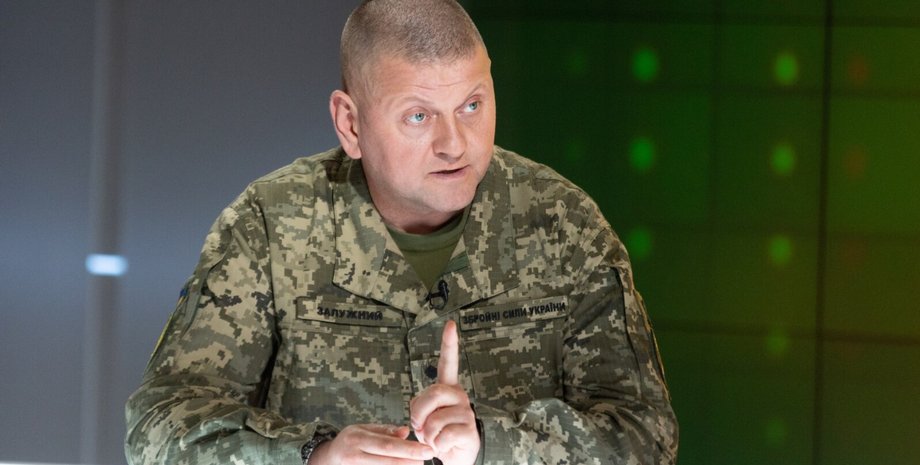
 By Victor Duda
By Victor Duda
The fate of Ukrainians and Europe will be decided in the Russian-Ukrainian war, wrote the former commander-in-chief of the Ukrainian Armed Forces, and now the ambassador to Britain, Valery Zaluzhnyi in a column for "Ukrainian Pravda". At today's stage of the war, Russia is confident of victory, which can happen on the battlefield or in the field of diplomacy. According to Zaluzhnyi, one should not give in to the Kremlin's statements about ending the war through negotiations.
Ukraine, as well as the Russian Federation, are under pressure from world politicians regarding the peace agreement, but it should be understood that the path to it will take many months and years, the column says. Zaluzhnyi explained that diplomacy is another front, and if one of the parties loses "strength" on it, calls for ending the war through negotiations appear.
In his opinion, it is premature to talk about such things, even though Ukraine has been fighting off the Russian Federation for 11 years in a row. "That is why calls to Ukraine and Russia to focus not on the cessation of hostilities, but immediately on reaching a comprehensive peace agreement, are premature," Zaluzhny wrote.
The column explains that in 2022-2025, Ukraine was forced to confront the Russian Federation also on the diplomatic front, and studies by several think tanks show that diplomacy has become "an integral part of the military-political strategy. " From this point of view, it is worth paying attention to how this tool is used by the Russian Federation. According to Zaluzhnyi, the Kremlin continues to use diplomacy tactics that were used in the USSR for 70 years.
At the same time, it is not about achieving peace, but about legitimizing one's own crimes and weakening international pressure. Zaluzhny singled out the main signs of Moscow's diplomatic efforts, which are manifested in the behavior of the current head of the Russian Foreign Ministry, Sergey Lavrov. Among them are procrastination, manipulation of facts, intransigence, petty demands, emotional pressure, etc.
For example, the main Russian diplomat constantly mentions the colonial past of Ukraine's partner countries in order to remove responsibility for war crimes from the Russian Federation. "Lavrov's diplomacy is a modernization of the Soviet school: the rhetoric remains conservative, but the content is filled with the tools of informational and psychological operations," the text reads.
The former commander-in-chief of the Armed Forces explained how to act in conditions when the Russian Federation uses diplomacy not for peace, but to prolong the war. Spokesmen of the new school, according to Zaluzhnyi, should be analytical, methodical, constructive, know the enemy's tactics and strategy, show that Ukraine is a responsible partner.
The general recalled that the negotiations on ending the war in Vietnam lasted five years and had an open and closed (backstage) format, while the hostilities continued for another two years after the formal signing of the peace agreement. Zalezhnyi concluded that Ukraine should prepare for long and exhausting negotiations to end the war, and along the way "avoid ill-considered steps and make maximum use of negotiations to protect national interests.
" It should be noted that after the arrival of US President Donald Trump in the White House in 47, a series of negotiations with the Russian Federation regarding the end of the war took place. The latest attempt to end hostilities came in October, with Trump first planning to meet with Putin in Budapest, then canceling the meetings when he saw that no concessions would be forthcoming.










All rights reserved IN-Ukraine.info - 2022